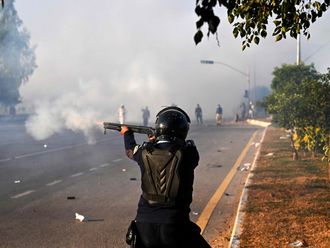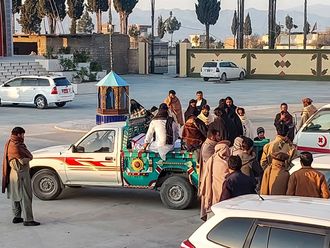Islamabad: Pakistan Army Chief General Raheel Sharif told the American ambassador during a meeting on Wednesday that “acts of sovereignty violations” would harm US-Pakistan ties.
US Ambassador David Hale visited GHQ in Rawalpindi near here and called on the army chief, four days after a US drone attack on Pakistani soil reportedly killed Afghan Taliban chief Mullah Akhtar Mansour.
“The situation arising after the US drone strike in Balochistan ... came under discussion,” said a statement issued by the military’s Inter-Services Public Relations (ISPR) department.
While expressing his “serious concerns” over the drone strike, General Raheel Sharif said: “Such acts of sovereignty violations are detrimental to relations between both countries and are counterproductive for ongoing peace process for regional stability.”
The Chief of Army Staff said Pakistan’s efforts, successes and sacrifices in the fight against terrorism have been unparalleled.
Earlier, following the drone attack on Saturday, the Foreign Affairs ministry had called in the US ambassador and conveyed concern over the violation of the country’s sovereignty.
Interior Minister Chaudhry Nisar Ali Khan on Tuesday warned the situation created by the drone attack could have “serious implications” for Pakistan-US relations.
He said Prime Minister Nawaz Sharif would convene a meeting of the National Security Council after his return from a visit to London to discuss the violation.
President Barack Obama on Monday confirmed Taliban chief Mullah Akhtar Mansour was killed in a US air strike, hailing his death as an “important milestone” in efforts to bring peace to Afghanistan.
Pakistan said such actions would adversely affect efforts by the Quadrilateral Coordination Group comprising US, China, Pakistan and Afghanistan to revive the stalled peace process.
The interior minister said Mansour had facilitated the holding of direct talks between the Afghan government and the Afghan Taliban, hosted by Pakistan in July 2015.
He disclosed that, during the meeting, the Taliban agreed Kabul should be declared a conflict-free zone.
A second round of talks was scheduled but was sabotaged by leaked information that Taliban supremo Mullah Omar had died two years ago, the minister said.












